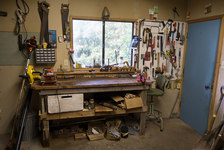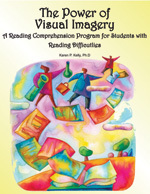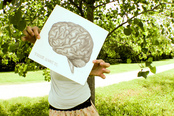 To all the Daddies, up at night with the little one while Mama gets some sleep.... To all the Mamas, taking their kids to school, sports, classes, and therapies.... For every Mom and Dad helping their kid with a late homework project the night before it's due.... To all of the Parents, bravely navigating the special education system to be the best advocate they can for their child.... Don't forget that you know your child better than anyone else. Your goals and dreams for your child go beyond the classroom door and are stored deeply in your heart. You are the key to your child's success! YOU ARE A TRUE SUPER HERO! Thanks for what you do.
0 Comments
 About a decade ago I found myself working with a 10 year old boy who was behind his peers academically by a couple of grade levels. His parents were unsure why, and aside from ADHD, he had not been diagnosed with a specific learning disability. The first session I had with him gave me a few answers. I pulled out a page of single digit addition problems. "I can't do it", he said, and refused to put his pencil to paper. He had visual signs of anxiety. I wrote the problems on a small white board, and he still refused to try. Reading was a similar experience. What I found is that he easily demonstrated many of the skills that brought him so much anxiety when playing games, or talking about sports. Students who cannot push much past their current level of capability into a challenge before shutting down can be said to have a narrow "challenge threshold". These kids often struggle in school because any time a new challenge presents itself, they don't have the emotional resiliency to deal with the possibility of not succeeding. In this case, I stretched my client's challenge threshold little bits at time by having him try one problem, or by reading one page, or writing one sentence, then praising him for his efforts. I worked with him on developing a "growth mindset", basically helping him to value growth and learning over academic perfection. Over the next year, this young man gained two years of academic growth and a whole new level of confidence. We all have a challenge threshold. The wider our challenge threshold, the more prepared we are to tackle what life throws at us. Nurturing a wide challenge threshold in our children is another way that we can help our children experience life-long success!  Short Term Memory is the "work bench" of the mind. It is the space in our thinking where we are actively working. It is the "surface" that holds the items we are actively thinking about, and where we "work" on those items, creating new thoughts and ideas. Different people have different "work bench" sizes, capacities, and levels of stability. Some people have large work benches that can hold vast amounts of information at one time. These people may be able to easily repeat back what they heard, often don't have difficulty taking notes on what they hear, and may be able to quickly recall details of what they read. Some people have work benches with smaller surface area. They may not be able to put as many items on their work benches before things start falling off. These individuals may lose track of conversations, may have difficulty recalling what they read, and may need to refer back to lists of tasks often in order to remember the next step. Short term memory can also be impacted by how much work is done with the items on the bench. This is called "working memory". Some people have a working memory that is strong enough that thoughts can easily be worked on, manipulated, re-organized, and built upon. People with a strong working memory can easily "work with" the information. For instance, they may be able to mentally re-organize a list of tasks, may be able to adjust ideas based on new information that they take in, or be able to create new ideas from what they already know. People with weak working memory may be able to keep information on their "work bench". Their short term memory may be fine, but their working memory is week and the entire "work bench" collapses under the stress. People with weak working memory have trouble thinking about what they hear, they have difficulty generating new ideas, and may forget things easily when they do more than just repeat back with they see or hear. Short term and working memory can be improved on with consistent practice with simple techniques. I often address challenges in working memory in my Educational Therapy sessions. There are also brain-training programs that address weaknesses in Short Term and Working Memory. Curious about your child's mental "work bench"?
With my Cognitive Analysis Program and Psycho-Educational Evaluations I am able to give parents powerful information about how their child learns, including their "work bench" capacity.  A couple of years ago I sat across the table from a middle school girl who was several grade levels behind when it came to reading comprehension. After a couple of sessions I realized that every word that she read was lost to her shortly after she heard herself speak it and that she was not creating visual images in her head of what she was reading. Creating mental images of what is read makes for a deeper reading experience. Just like you can think back to your 16th birthday and wonder why your uncle gave you bunny slippers instead of your favorite game, you can also think back and consider the events of a story you read. This is a skill that can be taught and after a couple of years of one-on-one intervention, my client is now nearing grade level comprehension and is savoring what she reads like she never has before. Below are a couple of programs to look over if reading comprehension and visualization is a challenge.  The Visualizing and Verbalizing program from Lindamood-Bell is the gold standard program for teaching visual imagery to support both spoken and written language. It is well researched, but requires training and expertise in order to administer the program to its maximum effect.  If there is a minor reading comprehension challenge, mostly with higher level thinking and grasping the deeper meanings of what is read, The Power of Visual Imagery might be what you are looking for It is a much less expensive book that can be ordered from Corwin Press or of of Amazon. It teaches some of the same Visualization Methods as Visualizing and Verbalizing, but without the intensity or repetition.  A couple of years ago, my husband Adam Brackin and I presented a paper in Oxford on Video games as a tool for cultural and social development for individuals on the Autism Spectrum. This was not presented to a room of people well versed in the Autism Spectrum, but to a room of scholars whose background focused on the impact of video games and new media on today's culture. With 1/66 children now being diagnosed with an autism spectrum disorder, autism in itself has, and will continue to become a huge factor in our cultural identity. Because video games and technology resonate highly with so many in the population of individuals with autism, this topic was of great interest. Feel free to read the draft copy of our paper here. |
AuthorLisa works with families who are looking for educational solutions for their children. She has provided services to families in the DFW area for over 10 years. Archives
October 2019
Categories |

 RSS Feed
RSS Feed